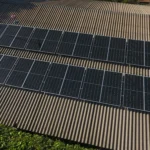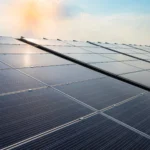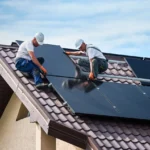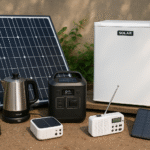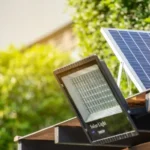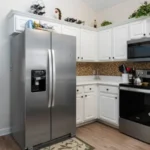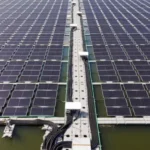In 2025, solar inverters have become more efficient and accessible than ever. This guide will cover the best models on the market, breaking down the top options by brand, features, and compatibility to help you find the perfect fit for your solar power needs.
What is a Solar Inverter and Why is it Important?
Solar inverters play a critical role in converting DC power generated by solar panels into usable AC power for household or commercial use. Their efficiency and compatibility directly affect the performance and savings of your solar power system.
Types of Solar Inverters
Choosing the right inverter type is key to maximizing the performance of your solar system. Here’s an overview:
- String Inverters: Ideal for simpler installations without shading concerns. Popular models include SMA Sunny Boy and Fronius Primo.
- Microinverters: Perfect for shaded or complex roof designs. Top choices include Enphase IQ8 and APsystems QS1.
- Power Optimizers: Work alongside string inverters to improve efficiency. The SolarEdge HD-Wave with optimizers is a popular choice.
- Hybrid Inverters: Designed for systems with battery storage. Models like Huawei SUN2000 and SMA Sunny Boy Storage are well-regarded.
Key Features to Consider When Buying a Solar Inverter
When comparing inverters, keep an eye out for these key features:
- Efficiency Rating: Look for models with 95% efficiency or higher. SMA Sunny Boy and Fronius Symo are known for their high efficiency.
- Battery Compatibility: If you plan to add storage, consider Huawei SUN2000 or LG Chem RESU-compatible inverters.
- Smart Monitoring: Enphase IQ8 and SolarEdge HD-Wave offer user-friendly apps for real-time monitoring.
- Warranty and Support: Most brands, including Fronius and SMA, offer warranties between 5-10 years.
- Installation Requirements: Compact models like Solax Power X1 and Fronius Primo are easier to install in smaller spaces.
Top Solar Inverters of 2025: Our Picks
a) SMA Sunny Boy 6.0-US
- Overview: Known for its high efficiency and durability, the SMA Sunny Boy is popular in residential settings.
- Key Features: High efficiency (up to 97%), integrated WiFi, and reliable build quality.
- Pros: Easy installation, excellent monitoring options.
- Cons: Slightly higher price point, limited to string setups.
- Best For: Homeowners seeking a reliable, efficient inverter for simple systems.
b) Enphase IQ8 Microinverter
- Overview: The latest in microinverter technology, the Enphase IQ8 offers unmatched flexibility for roof designs with shading.
- Key Features: Panel-level optimization, high efficiency, real-time monitoring app.
- Pros: Excellent for complex roofs, easy to expand the system.
- Cons: Higher upfront cost due to the need for multiple microinverters.
- Best For: Roofs with shading issues or multiple orientations.
c) SolarEdge HD-Wave Inverter with Power Optimizers
- Overview: The SolarEdge HD-Wave combines the benefits of string inverters with power optimizers, maximizing performance at the panel level.
- Key Features: High efficiency, energy monitoring, and shade optimization.
- Pros: Ideal for installations with partial shading, great for maximizing energy output.
- Cons: Requires optimizers, which add to the total cost.
- Best For: Residential systems with occasional shading or specific efficiency needs.
d) Huawei SUN2000 Hybrid Inverter
- Overview: This hybrid inverter supports battery storage, making it perfect for those seeking energy independence.
- Key Features: Battery compatibility, high efficiency, and monitoring app.
- Pros: Future-ready for battery integration, excellent for hybrid setups.
- Cons: Requires professional installation, higher cost.
- Best For: Homeowners looking to add battery storage or go off-grid.
e) Fronius Primo GEN24 Plus
- Overview: Known for its robust build and high efficiency, the Fronius Primo is a favorite for residential and light commercial installations.
- Key Features: Backup power capability, smart monitoring, and high reliability.
- Pros: Excellent customer support, high-performance.
- Cons: Higher price, not ideal for small budgets.
- Best For: High-quality installations where efficiency and backup power are priorities.
How to Choose the Right Solar Inverter for Your Needs
Choosing the right inverter depends on your unique setup and energy goals. Consider these factors:
- Home vs. Commercial Use: Residential users may prefer cost-effective options like SMA Sunny Boy, while commercial setups often need high-capacity models like Fronius Symo.
- Professional Consultation: Consulting with a solar technician can help ensure compatibility and optimal performance.
- Budget and Energy Goals: Determine your budget and whether you want battery storage or high efficiency to guide your choice.
Frequently Asked Questions (FAQs)
1. What’s the lifespan of a solar inverter?
Most inverters, such as those from SMA and Fronius, last between 10-15 years and often come with warranties of up to 10 years.
2. How do I maintain my solar inverter?
Regularly check for dust and debris, and schedule professional inspections to catch potential issues early.
3. Is it worth investing in a hybrid inverter?
If battery storage is a goal, a hybrid inverter like Huawei SUN2000 can offer great value despite the higher upfront cost.
4. What inverter efficiency should I look for?
Aim for 95% or higher; SMA Sunny Boy and SolarEdge HD-Wave models are known for high efficiency.
5. Can I install a solar inverter myself?
While some models are DIY-friendly, it’s usually best to have a professional install your inverter.
Conclusion
Investing in a quality solar inverter is essential to getting the most out of your solar energy system. Each of the models reviewed here offers unique features suited to different setups and energy goals. By understanding your needs and consulting with a solar professional, you can make an informed decision to maximize your solar efficiency and savings in 2025.


